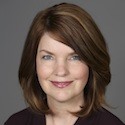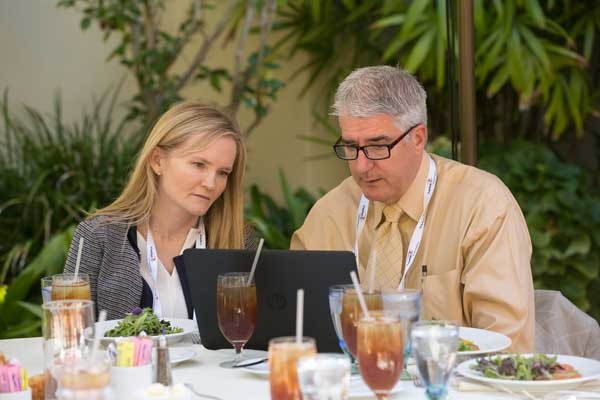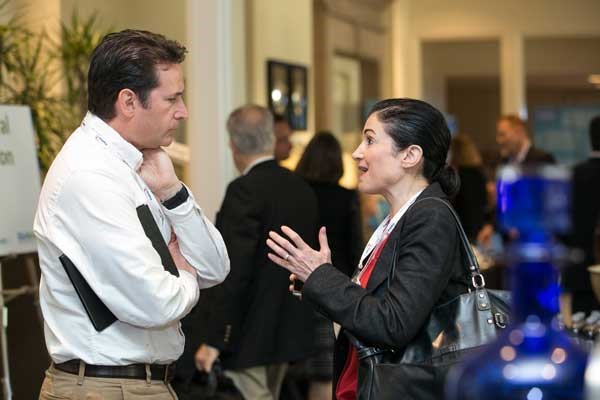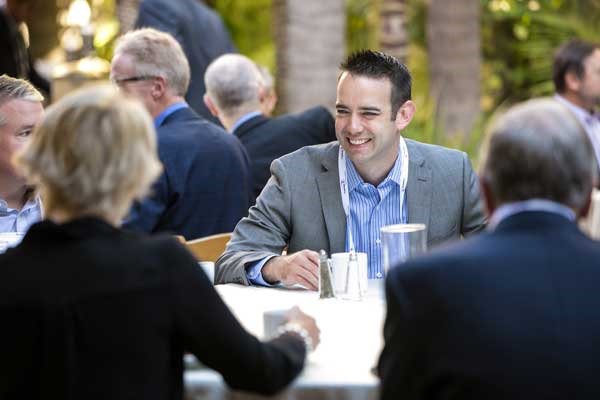Interview Julene Campion

We caught up with one of our keynotes, Julene Campion, VP Talent Acquisition at Geisinger Health System, to discuss her passions at work, balancing “heart and soul” with data within her role, and what she is looking forward to sharing with you at HR Healthcare.
Would you give a very quick overview of what you do at Geisinger and what makes you the most passionate about your role?
At Geisinger I’m the Vice President of Talent Acquisition. In my role, I’m responsible for creating and implementing measurable talent strategies for all roles, including executive positions, nurses, physicians, housekeepers, dietary aides and more. The talent strategies encompass building a future talent pipeline, hiring external experienced talent, managing our premium labor expenses, and partnering closely with my peers to develop strategies which attract and retain a diverse and engaged talent community.
I’m most passionate about finding the “sweet spot” where these strategies are balanced. I enjoy the challenge of understanding which lever to push or pull to meet the goals of the strategic workforce plan. So, as an example of that, right now we’re focused on building our future talent pipelines for registered nurses. At the same time, we’re carefully monitoring and measuring our premium labor expenses and the impact on the organization’s bottom line.
“I’m most passionate about finding the ‘sweet spot’ where these strategies are balanced.”

Why is bringing data to the HR conversation something you're specifically passionate about? What do you recommend HR leaders should keep in mind in regards to metrics and data in HR strategy?
Metrics and data are not the only things we need to focus on - it’s all about the people when you are an HR professional. I hope we are thought of as the heart and soul of the organization and the gatekeepers of workplace culture in terms of employee engagement. However, we do have to bring data, metrics, and strategy to the conversation. Data elements include annual turnover, first year retention, average days to fill an open position, employee engagement scores, and patient experience. So, it’s finding a way to balance discussing the importance of people with the financial viability of your healthcare system. Using a simple forecasting or modelling tool can help - nothing fancy. During my workshop at HR Healthcare, we will focus on nurses because everyone in healthcare is challenged with attracting and retaining nurses. We need to focus on how many nurses will be needed in the next three to five years to take care of your patient population. We must be more predictive and less reactive. That’s the piece we’re all missing.
“We must be more predictive and less reactive. That’s the piece we’re all missing.”

You see HR as the “heart and soul” of the organization. Many HR departments are now working to streamline processes with increased technological interaction and less human interaction. How do we keep the “Human” in “Human Resources”? Do you think it gets lost sometimes?
Back to the theme of balance. People want constant, on-demand information, so I think there’s an opportunity to blend the autobots and the chatbots and the automatic responses and the self-service portals with the human touch. For example, in the engagement between the job seeker and the employer, there should be a decision point when dialogue begins. I think we can do better – when we have a great match, there needs to be a very fast and efficient way of connecting the candidate and the employer. If we can harness technology to more quickly determine the candidate/employer “match” as it relates to qualifications, competencies and cultural fit, then I think we can focus more clearly on establishing a strong human connection.
“If we can harness technology to more quickly determine the candidate/employer "match"...then I think we can focus more clearly on establishing a strong human connection.”

You are very focused on operationalizing a strategic perspective and strongly emphasize that predicative analytics is best leveraged when it is about talent management as a whole: do you think some organizations are missing opportunities for perhaps building a compelling narrative or actionable targets if you’re only focused on applying data driven strategy?
One of the things we did at Geisinger was launch a Strategic Workforce Planning RN 2020 Advisory Group. We invited nursing leaders from across the system including inpatient nursing, outpatient nursing, homecare, hospice, nursing home, etc. When we brought everyone together, we looked at the talent strategies more holistically and began to create sub-groups of cross-functional teams. We developed a purpose statement, specific strategies, tactics, and metrics. For example, we are committed to achieving best-in-class performance for employee engagement, first-year retention, annual voluntary turnover, days to fill a posted position and patient experience.
For our strategy related to diversity & inclusion, we launched a research project, through our research division, the first ever in the country, and we just got the results back. We sent out thousands of surveys to college students with a goal to better understand if someone from a diverse background has a different perspective of what they want from their future employer. We will utilize the results of the survey to enhance our attraction and retention strategies. I sometimes call this an evidence-based talent strategy.
“When we brought everyone together, we looked at the talent strategies more holistically and began to create sub-groups of cross-functional teams.”

At HR Healthcare, you're asking our attendees to bring data points for your workshop. What is the one thing you want them to take out of it?
I’m very excited about the concept of an interactive workshop versus a presentation. I think it would be most helpful and effective if each attendee could bring some nursing data such as headcount, annual turnover, anticipated growth or retraction, average age of their nurse, annual vacancy for their nurses, etc. I’ll walk them through an example calculation based on some very simple formulas. We will talk about how the data will then inform the annual strategic workforce plan, and quarterly/monthly targets. We will also talk about using an infograph that visually displays progress to the targets and (hopefully) engages all employees in the discussion around attraction and retention of talent.
“I’m very excited about the concept of an interactive workshop versus a presentation.”
You've been an enthusiastic supporter & participant of HR Healthcare - what are some things you are most looking forward to at the event in August?
First, the venue that you’ve selected is absolutely amazing. I love La Jolla and the property looks incredible. So anyone who can add a day or two to either end of the conference and make it a little more of a getaway, do it because it’s just a beautiful place.
The fact that this is peer-led and it’s so specific about healthcare HR, I think it’s such a needed conference for all of us in the industry. I was just at a conference which was great and they had some specific panels of healthcare HR leaders. My biggest takeaways were not from the vendor presentations, the biggest takeaways were from my HR peers on the panels. That is the format for this conference. I am excited about the opportunity to learn from one another and to grow our professional network. So I think the fact that it's healthcare HR-specific, peer-led, and you have such a variety of different topics, I'm really excited about learning from everyone else.
"The fact that this is peer-led and it's so specific about healthcare HR, I think it's such a needed conference for all of us in the industry. I am excited about the opportunity to learn from one another and to grow our professional network. I'm really excited about learning from everyone else.”